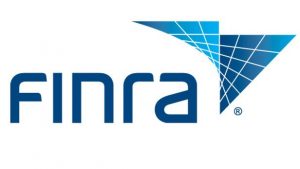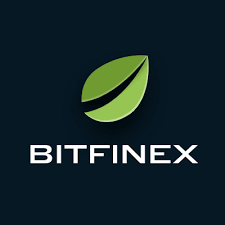 A Commodities Futures Trading Commission (CFTC) Commissioner suggested that Self-Regulatory Organization may be necessary to provide some regulation over virtual.
A Commodities Futures Trading Commission (CFTC) Commissioner suggested that Self-Regulatory Organization may be necessary to provide some regulation over virtual.
Commissioner Brian Quintenz made the comments at the Blockchain Summit in Washington D.C.
“I also expressed my willingness to explore how a new, private independent organization could perform an oversight function for U.S. cryptocurrency platforms. For example, we see this model working today through the National Futures Association (NFA) and the Financial Industry Regulatory Authority (FINRA). Currently, a patchwork of state and federal regulators have jurisdiction over the cryptocurrency industry. In my opinion, the area with the greatest need for enhanced regulatory certainty and oversight is the spot market. Today, state regulators and the Treasury Department’s Financial Crimes Enforcement Network (FinCEN) regulate cryptocurrency platforms as money service businesses.16 While cryptocurrency exchanges can resemble traditional money transmission services, there are enough differences to warrant different regulatory treatment. As Congress works with federal and state regulators to determine the appropriate regulatory framework for cryptocurrencies, I believe an SRO-like entity could develop industry standards that could inform, or even serve as a blueprint for, future action.
“Indeed, we are already seeing a movement toward self-regulation in the cryptocurrency sector. A cryptocurrency trade association called ‘CryptoUK’ was recently established in the United Kingdom. The organization has established a code of conduct for its members which includes guidelines around due diligence checks, customer protections, and pricing transparency. Similarly, the heads of two cryptocurrency trade groups in Japan, together with the country’s 16 spot exchanges, have committed to establishing a new self-regulating body. In the United States, efforts toward standardization are also underway at the state level. Seven states have agreed to recognize each other’s money service business licenses and a model state virtual currency law has been published.
 “I think an independent, self-regulating body for spot platforms in the United States could significantly contribute to these ongoing efforts to rationalize and formalize cryptocurrency regulation. Initially, this entity could establish best practices for spot platforms, including setting minimum standards of fitness for their employees. Eventually, it could enforce rules on its own membership, supervise them for compliance, and provide a forum for customers to seek redress against member platforms, just like FINRA and NFA do for the securities and derivatives markets today. An SRO-like, independent regulatory body could create uniform standards for these trading platforms, reduce the possibility of regulatory arbitrage, and avoid duplicative regulation.”
“I think an independent, self-regulating body for spot platforms in the United States could significantly contribute to these ongoing efforts to rationalize and formalize cryptocurrency regulation. Initially, this entity could establish best practices for spot platforms, including setting minimum standards of fitness for their employees. Eventually, it could enforce rules on its own membership, supervise them for compliance, and provide a forum for customers to seek redress against member platforms, just like FINRA and NFA do for the securities and derivatives markets today. An SRO-like, independent regulatory body could create uniform standards for these trading platforms, reduce the possibility of regulatory arbitrage, and avoid duplicative regulation.”
A Self-Regulator Organization (SRO) is a creation of the government but operates as an independent regulator.
The Financial Industry Regulatory Authority (FINRA), which regulates trading on the NYSE and NASDAQ is an example of an SRO in the trading industry; the American Medical Association (AMA) and the American Bar Association (ABA) are examples in other fields.
In his speech, Quintenz also described the CFTC’s history of regulating virtual currency. In 2014, then CFTC Chair Tim Massad first said that virtual currency was a commodity in a hearing; in September 2015, that was formalized in the first enforcement action involving a virtual currency.
That virtual currency, Derivabit, which was deemed by the CFTC to offer futures contracts without properly registering.
A further action against Bitfinex.
As Quintenz noted, that enforcement action also made policy: “The CFTC filed and settled a case against a Hong Kong-based company called Bitfinex. Bitfinex held itself out as a spot exchange where retail customers could buy and sell bitcoin and other virtual currencies. However, the exchange permitted retail customers to purchase bitcoin on a leveraged, margined or financed basis, thereby transforming what might have been vanilla spot transactions into look-alike futures contracts within the Commission’s jurisdiction.
“In the case of Bitfinex, the Commission found that Bitfinex failed to actually deliver the bitcoin to the buyers because Bitfinex held the bitcoin in its own private wallet and retained control of all the ‘private keys’ that permitted access to the wallet. Accordingly, the Commission found that these financed retail commodity transactions did not meet the exception for actual delivery and should have been executed on a registered exchange like any other futures contract. In addition, the Commission determined that Bitfinex should have been registered as a futures commission merchant.
 “While I agree with the outcome of the Bitfinex case, it is an example of the Commission making policy through enforcement. Prior to Bitfinex, the CFTC had never before addressed what ‘actual delivery’ means in the context of virtual currencies – although the agency had issued guidance in 2011 about what actual delivery means in the context of physical commodities, like wheat or oil. Therefore, before the Bitfinex case, there may have been some confusion about what constitutes actual delivery for cryptocurrencies. As a general matter, I think the optimal approach to the regulation of incipient, but growing, markets is for the regulator to provide the market with some guidance or even a bright line test that gives some indication of the agency’s interpretation of its regulations and how it might adjudicate certain situations.”
“While I agree with the outcome of the Bitfinex case, it is an example of the Commission making policy through enforcement. Prior to Bitfinex, the CFTC had never before addressed what ‘actual delivery’ means in the context of virtual currencies – although the agency had issued guidance in 2011 about what actual delivery means in the context of physical commodities, like wheat or oil. Therefore, before the Bitfinex case, there may have been some confusion about what constitutes actual delivery for cryptocurrencies. As a general matter, I think the optimal approach to the regulation of incipient, but growing, markets is for the regulator to provide the market with some guidance or even a bright line test that gives some indication of the agency’s interpretation of its regulations and how it might adjudicate certain situations.”
CFTC Chair also appeared in front of Congress this week, where he answered questions about CFTC regulation of virtual currency.
The Blockchain Summit is organized by Chamber of Digital Commerce, and Georgetown University’s Center for Financial Markets and Policy.
It features “global thought leaders from the public and private sectors to discuss key market developments, including initial coin offerings, bitcoin futures and ETFs, trading and investing in cryptocurrencies, smart contracts, legislative and regulatory trends, and more.” according to its website.









